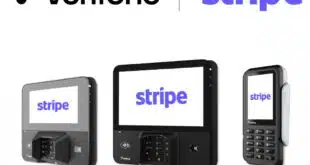On Wednesday, PayPal Holdings Inc. made it clear it hasn’t given up on expanding its reach with merchants beyond processing e-commerce payments. The company announced a new in-app payments initiative for its popular Venmo peer-to-peer payments app, a move that follows a recent agreement with First Data Corp. that furthers PayPal’s ambitions to process point-of-sale transactions.
The new Venmo service, called Pay With Venmo, allows users to pay with their Venmo accounts within a merchant app much as they would do with PayPal. The service is piloting with Gametime, a vendor of concert and sports tickets, and Munchery, a meal-delivery service. PayPal says it will add more merchants over time and launch it commercially later in the year.
“We plan a robust rollout of Pay With Venmo throughout 2016,” said PayPal chief executive Dan Schulman during a call Wednesday with analysts to discuss the company’s fourth-quarter earnings.
Pay With Venmo follows PayPal’s announcement last month that its Braintree unit is enabling payments for car-share services like Uber through Facebook Messenger. With this service, users of the social network’s Messenger app can order a ride without leaving the app.
Meanwhile, PayPal also said that during the quarter it signed an agreement with First Data that will allow the processing giant’s client merchants to handle tokenized PayPal transactions in their stores. The deal not only gives PayPal access to First Data’s approximate 40% share of the U.S. acquiring market, it also reverses a nearly 3-year-old ban First Data had placed on handling PayPal transactions at its clients’ stores. At the time, PayPal acceptance in-store relied on connections through the Discover network. First Data’s move, imposed in the spring of 2013, crippled PayPal’s nascent expansion to the point of sale. “This [agreement] is an important step forward for PayPal in in-store payments,” Schulman told the analysts.
The importance of Pay With Venmo lies in PayPal’s need to find ways to wring revenue from the fast-growing service. Venmo processed $7.5 billion in payments in 2015, up 213%. It handled $2.5 billion in the fourth quarter alone, a 174% increase over the same quarter in 2014. But Venmo’s P2P payments are free to users, leaving PayPal with a quickly expanding impact on its revenue per user. PayPal’s transaction margin was 61.1% in the fourth quarter, down from 63.5% a year earlier.
With Pay With Venmo, PayPal can charge merchants for transactions. “We think that’s just one way we can start to monetize [Venmo],” Schulman said.
In other results, PayPal announced it added 6.6 million new users in the quarter, a record number, though 1.6 million of these came from Xoom Corp., a money-transfer service it acquired last year. The company closed the year with 179 million active accounts, up from 162 million at the end of 2014.
Payments volume totaled $81.5 billion in the quarter on 1.43 billion transactions, up 23% and 25%, respectively, over the year-ago period. Payment volume included $20 billion in mobile payments, up 45%. Mobile now accounts for nearly 25% of total volume, compared to 21% a year ago.
One metric PayPal has watched closely since Schulman took over last year after the company spun off from eBay Inc. as an independent, publicly held enterprise is transactions per account, which the company sees as a critical measure of consumer engagement. This number was 27.5 in the quarter, up from 24.5 a year ago.





